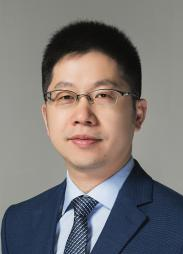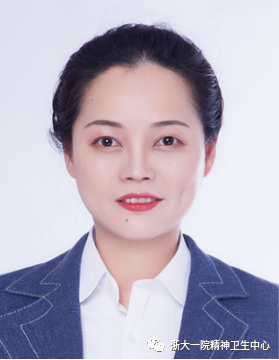Shaohua Hu, M.D.
Qiushi Distinguished Professor of Zhejiang University, Chief Physician, Doctoral Supervisor. Director of the Psychiatry Department of the First Affiliated Hospital of Zhejiang University School of Medicine.

The Psychotherapy Training Program at the First Affiliated Hospital, Zhejiang University School of Medicine offers an outstanding opportunity for international candidates including psychiatrists, psychotherapists, and psychiatric nurses to receive comprehensive and advanced training in the field of mental health and psychotherapy.
Our program stands out due to our specialty in Interpersonal Psychotherapy (IPT). As the host of the Chinese branch of the International Society for Interpersonal Psychotherapy (ISIPT), we are able to provide unique and in-depth IPT training. Trainees will gain a profound understanding of the theoretical framework and practical techniques of IPT, learning how to effectively address various mental health issues through enhancing interpersonal relationships and communication skills.
In addition to its leading edge in the field of Interpersonal Psychotherapy (IPT), this program also provide training in various mainstream psychotherapies, including Cognitive Behavioral Therapy, Family Therapy, Dialectical Behavior Therapy, and Psychodynamic Therapy. For all these psychotherapy techniques, we have excellent teaching staff, rich clinical experience and comprehensive course content.
During the training, participants will not only engage in clinical learning activities within the wards and different campuses of the department, but also have access to a wealth of research-related training and information. This combination allows them to develop a well-rounded understanding of the field. Participants with high Chinese fluency will be involved in patient assessment and individual and group psychotherapy sessions under supervision. Moreover, our training emphasizes a multi-disciplinary approach involving psychology, psychiatry, and brain science. Trainees will collaborate with professionals from these disciplines to ensure a more comprehensive understanding and treatment of patients.
From the very start of the program, trainees will experience our patient-centered and culturally sensitive environment. We respect the individuality and background of each trainee and patient, aiming to foster an atmosphere of mutual respect and learning. Our faculty members, who are renowned experts in the field, are dedicated to mentoring and guiding trainees to reach their full potential in both clinical practice and research, equipping them with the skills and knowledge necessary to make a significant impact in the global mental health community.
1. Professional IPT Training: As the host of the Chinese branch of the International Society for Interpersonal Psychotherapy (ISIPT), we offer unique and in-depth training in Interpersonal Psychotherapy, helping trainees master its theoretical framework and practical techniques.
2. Comprehensive Clinical Practice: Trainees can participate in clinical learning activities within the wards and different campuses of the department, and conduct patient assessment as well as psychotherapy under supervision.
3. Multidisciplinary Integration: Emphasize the multidisciplinary collaboration of psychology, psychiatry and brain science to promote trainees' comprehensive understanding and treatment of patients.
4. Abundant Research Resources: Provide a wealth of research-related training and information, support trainees to participate in clinical research projects and contribute to the development of disciplinary knowledge.
5. Expert Teaching Team: Composed of renowned experts in the field, the faculty team is dedicated to tapping the clinical and research potential of trainees and providing careful guidance.
6. Culturally Inclusive Environment: Create a patient-centered and culturally sensitive atmosphere, respect the individual and background of trainees and patients, and cultivate a culture of mutual respect and learning.
7. Overall Ability Enhancement: Enable trainees to achieve a comprehensive improvement in knowledge, skills, clinical practice and research level in the field of mental health and psychotherapy, and enhance their global influence.
8. Frontier Knowledge Exchange: Trainees have the opportunity to participate in various academic conferences and seminar activities, and keep abreast of the international frontier trends and knowledge achievements in the field of mental health.
The goal of our program is to train international trainees like psychiatrists, psychotherapists and psychiatric nurses. They’ll master psychotherapy methods, especially IPT, via theoretical learning, clinical practice in wards and campuses and research. We'll cultivate interdisciplinary thinking and enhance research capabilities. The expected outcome is that they can handle mental health issues well, contribute to research progress and become leading professionals in the global mental health community, thus improving patients' well-being and promoting international cooperation and innovation in mental health care.
The program provides a full-time, 1-month to 1-year training experience. In special circumstances, arrangements can be made for other lengths of training depending on your needs and interests.
• Visiting Scholar:
1. Applicants are required to have a master's or doctorate degree in psychiatry, psychology or related fields, as well as at least 1 year of work experience in psychiatry or psychotherapy.
2. Applicants need to possess either a practicing physician license , a psychotherapist's practice qualification, a psychological counselor's practice qualification or an equivalent practicing qualification issued by the government of in their home country or a accredited institution. These qualifications should be valid when the applicant participate in this program.
3. Proofs are required to be provided.
• Clinical Trainee:
1. Applicants are required to have a master’s or doctorate degree in psychiatry, psychology or related fields.
2. Applicants need to possess either a practicing physician license , a psychotherapist's practice qualification, a psychological counselor's practice qualification or an equivalent practicing qualification issued by the government in their home country or a accredited institution. These qualifications should be valid when the applicant participate in this program.
3. Proficiency in Chinese.
4. Proofs are required to be provided.
• Students:
1. Must be a medical or psychology-major student.
2. Medical School/Department Approval - Letter of good standing from the dean’s office of your medical school/department indicating you are a current student with your expected graduation date, in good academic standing and meet all requirements to graduate.
3. Relevant courses such as psychiatry, psychopathology, physiological psychology, psychotherapy/counseling, and/or clinical psychology have already been completed at the university, with good or above grades have been achieved.
4. Proofs are required to be provided.
1. Psychotherapy for adults and adolescents
2. Psychotherapy for common mental disorders, including depressive disorders, bipolar disorder, anxiety disorders, sleep disorders etc.
Advanced psychotherapy techniques, including: Interpersonal Psychotherapy, Cognitive Behavioral Therapy, Family Therapy, Dialectical Behavior Therapy, Psychodynamic Therapy
3. Psychotherapy techniques combined with cutting-edge psychometric techniques (such as functional near-infrared spectroscopy for brain imaging, fNIR), physical therapy techniques (such as repetitive transcranial magnetic stimulation, rTMS) and digital techniques.
4. Research techniques related to psychiatry and psychotherapy
5. Multidisciplinary Collaboration
Monday
1st Week: introduction & welcome, program overview and objectives
Weekly: journal club, clinical rounds, clinical skills training
Tuesday
Weekly: outpatient observation, basic skills training
Biweekly: mentor one-on-one training
Wednesday
Weekly: clinical rounds, academic lecture
Biweekly: mentor one-on-one training
Thursday
Weekly: complicated case study, case-based discussion
Biweekly: special task training
Friday
Weekly: clinical rounds, MDT conferences, complicated case study
Last Week: wrap-up & reflection, participant presentations or discussion of key takeaways, feedback session
Every week, each teaching faculty member will evaluate corresponding trainee doctor/psychotherapist according to the core competencies such as patient care, medical knowledge, practice-based learning and improvement, interpersonal and communication skills, professionalism, and system-based practice. The teaching faculty members will meet with the trainee doctors/psychotherapists individually to give verbal feedback and evaluations. In terms of psychotherapy techniques, technical abilities will be evaluated through specially designed evaluation forms and simulated sessions. At the end of the training, the training faculty committee will conduct a comprehensive evaluation of the clinical progress of the trainee doctors/psychotherapists.

Qiushi Distinguished Professor of Zhejiang University, Chief Physician, Doctoral Supervisor. Director of the Psychiatry Department of the First Affiliated Hospital of Zhejiang University School of Medicine.

Chief Physician, Doctoral Supervisor. Deputy Director of Psychiatry Department of the First Affiliated Hospital of Zhejiang University School of Medicine, Deputy Director of the Zhejiang Provincial Key Laboratory for the Diagnosis, Treatment, Prevention and Control of Mental Disorders.

Professor, Chief Physician, Doctoral Supervisor, Doctor of Psychiatry from Peking University, Postdoctoral Fellow at The Hong Kong Polytechnic University, and Clinical Visiting Scholar at Homewood Health Center in Canada.

Deputy Chief Psychotherapist, Psychiatry Department of the First Affiliated Hospital of Zhejiang University School of Medicine. Head of the Psychological Assessment and Treatment Sub-specialty; Registered Psychotherapist of the National Health Commission; National Second-Level Psychological Counselor

Chief Psychotherapist, Psychiatry Department of the First Affiliated Hospital of Zhejiang University; Registered Psychotherapist of the National Health Commission; Registered Psychologist of the Clinical Psychology Registration System of the Chinese Psychological Society; National Second-Level Psychological Counselor

Chief Psychotherapist, Psychiatry Department of the First Affiliated Hospital of Zhejiang University. National Second-Level Psychological Counselor, Registered Psychotherapist of the National Health Commission, Registered Psychologist of the Chinese Psychological Society, Certified IPT Psychotherapist by International Society for Interpersonal Psychotherapy.

Psychotherapist, Psychiatry Department of the First Affiliated Hospital of Zhejiang University School of Medicine; Registered Psychologist (X-22-090) of the Chinese Psychological Society; National Second-Level Psychological Counselor.

Chief Technician, Psychiatry Department of the First Affiliated Hospital of Zhejiang University. National Second-Level Psychological Counselor. Registered Psychotherapist of the National Health Commission. Contracted Counselor at the Mental Health Counseling Center of Zhejiang University.
The program is free of charge.